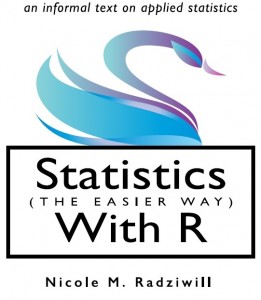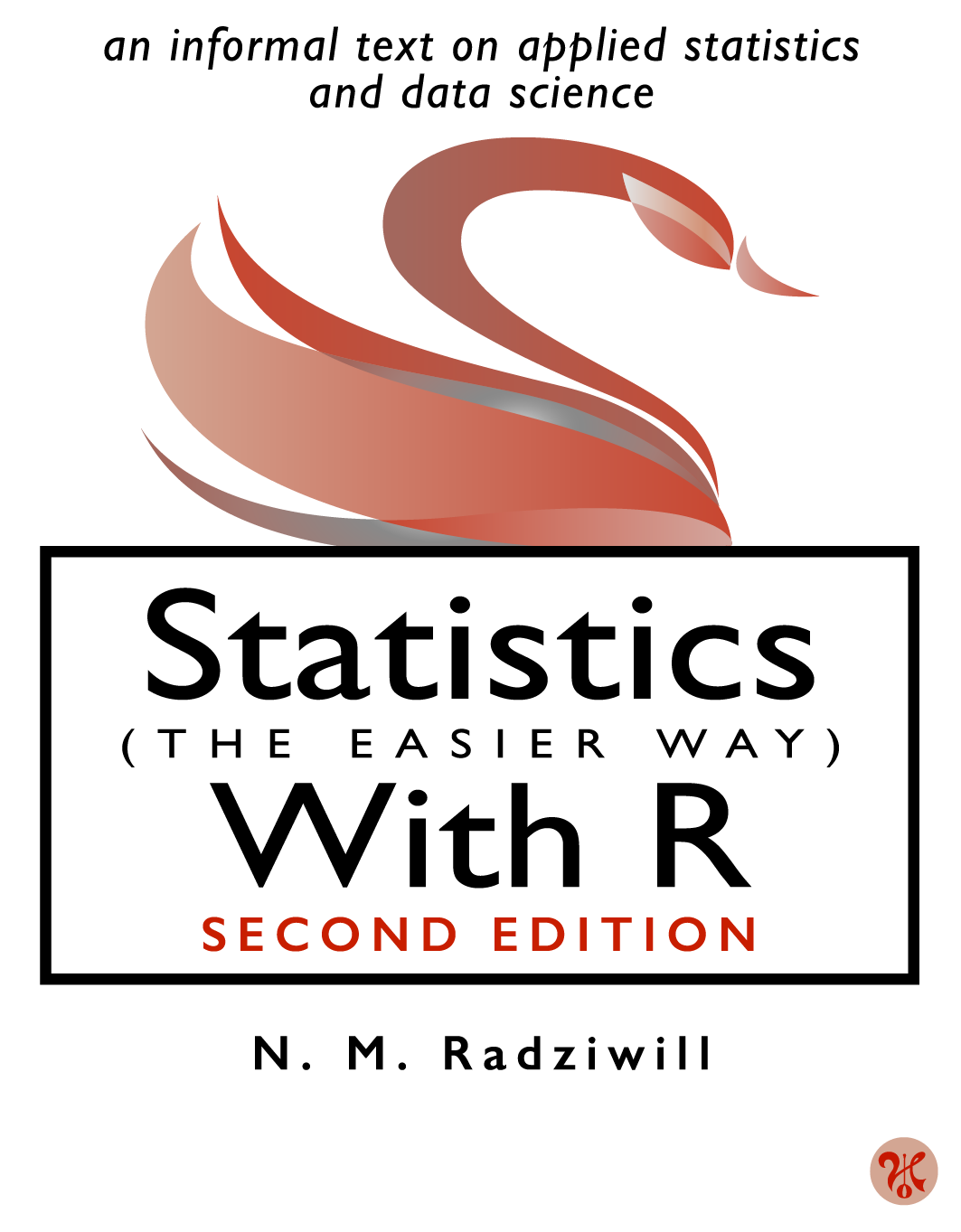 Last month, I published an “informal textbook” to help people more easily learn introductory statistics with the R programming language. The process of developing the book (and refining the course that uses it) was informed by the 10 Principles of Burning Man, basically because they imbue everything I do now. Here’s a short little “in a nutshell” explanation of how:
Last month, I published an “informal textbook” to help people more easily learn introductory statistics with the R programming language. The process of developing the book (and refining the course that uses it) was informed by the 10 Principles of Burning Man, basically because they imbue everything I do now. Here’s a short little “in a nutshell” explanation of how:
Civic Responsibility – All of my statistics classes focus on analyzing real data for real people. I encourage everyone to develop their research questions (and gather their data) in conjunction with an organization that needs help (particularly not-for-profits and small businesses)! By encouraging service learning, students become aware that they can help others as they are in the process of learning.
Communal Effort – Everyone has to bring data to the class, whether they collect it themselves or get it from an archive. Since analyzing your individual data segues into analyzing data as a team, oftentimes, student groups will combine their datasets or interests as they are constructing research questions. Also, I encourage everyone to actively collaborate, and don’t view using each other (or using resources on the Internet, as long as they’re cited) as cheating. It’s really hard to cheat when you are being resourceful and citing all your sources.
Decommodification – The textbook we used to use (published by a Large Faceless “Old Story” Publishing Company) cost about $200 (or $150, if you were lucky and could get one used). This always turned my stomach. I’m thrilled to be able to offer students a textbook that’s much more targeted to the work they’ll do in an intro course for around $30 – and because it also feels like a cookbook or handbook, they’ll be able to use the material for years as they grow and develop as professionals.
Immediacy – Why study any subject “so you can do something with it later”? Statistics provides tons of useful tools that can be used now to explore the stories that a dataset can tell. As a result, I built my course and book around the premise that students don’t want to solve homeworky-style problems… they want to be able to analyze data that interests them now.
Gifting – All of my students get a PDF of their book for free… purchasing a print copy is optional. Because I retained the digital rights, I can share the PDF as much as I want and not get in trouble with my publisher!
Leave No Trace – Remember when you were in school, and you produced all those useless projects that never served to benefit anyone, anywhere? I believe that no work you do while you’re learning new things should be in vain. Either you should work on projects that have the potential for interesting results you can publish (even if you publish them online, on a blog) — or you should use your expertise to generate new exercises and learning experiences to help others who are just starting out. As a beginner, you have a unique perspective that should be shared! Export your knowledge. It will help someone, somewhere, at some point in time!
Participation – Everyone has to bring data to the class, whether they collect it themselves or get it from an archive. This forces people to share their interests with others! Also, when we do inference problems, everyone has to generate simulated data (or find archival data) to do problems with.
Radical Inclusion – Everyone has different skills, talents, and gifts in different stages of development. And everyone has something to contribute to the learning community and the learning experience. In my opinion, an introductory course isn’t the place where you should be expected to get everything right immediately. But as part of a learning community, you should be able to pool your resources to make sure you get everything right immediately!
Radical Self-Expression – By getting to choose your own data, you get to express (and extend!) your own interests. Also, by being given the freedom to grow your skills based on those you initially bring into the learning experience, we drive out fear and make it easier for you to try things that might be a little more difficult, to build your competence.
Radical Self-Reliance – My method fully integrates the analytical solutions (using equations) and the solutions provided by the R statistical software. I believe that it’s powerful to be able to do all of the following: 1) perform the calculations by hand to see all of the intermediate steps in the problem-solving, 2) use the R software to generate the same results, and 3) compare them to each other to validate your solution strategy. By recognizing that there are multiple ways to figure something out, all at your disposal, you don’t need an “answer key”… just the capability for critical thinking, and the ability to check yourself to see if your answers make sense compared to your data.








[…] I apply the 10 Principles of Burning Man in the design and conduct of all my undergraduate and graduate-level courses, including my introductory statistics class (which has a heavy focus on R and data science) at JMU. This means that I consider learning to be emergent, and as a result, it often doesn’t follow a prescribed path of achieving specified learning objectives. However, in certain courses, I still feel like it’s important to provide a general structure to help guide the way! This also helps the students get a sense of our general trajectory over the course of the semester, and do readings in advance if they’re ready. […]
[…] I apply the 10 Principles of Burning Man in the design and conduct of all my undergraduate and graduate-level courses, including my introductory statistics class (which has a heavy focus on R and data science) at JMU. This means that I consider learning to be emergent, and as a result, it often doesn’t follow a prescribed path of achieving specified learning objectives. However, in certain courses, I still feel like it’s important to provide a general structure to help guide the way! This also helps the students get a sense of our general trajectory over the course of the semester, and do readings in advance if they’re ready. […]
Hi Nicole,
I really like the way you found to bring the Burning Man principles into a classroom setting. I wish I had had a professor like you when I studied math, physics & engineering in college. Although it was personally challenging and satisfying, and I found a great job at HP Labs, I left the tech field after 6 years because I just couldn’t see its relevance to everyday life. After 12 years in construction (tech for people 😉 ) I entered a new tech field as a programmer and eventually discovered clinical research informatics which is where I found relevance to my tech work. I’ve worked in this field now for 15 years largely because of how what I do helps researchers manage their data in order to make their discoveries that lead to better understanding of health. Still a long payback period, but it is tangible.
Anyway, I just thought you would like to know that you made yet another impact outside the classroom – gotta love the gift economy!
Paul Courtney
http://www.paulkcourtney.me